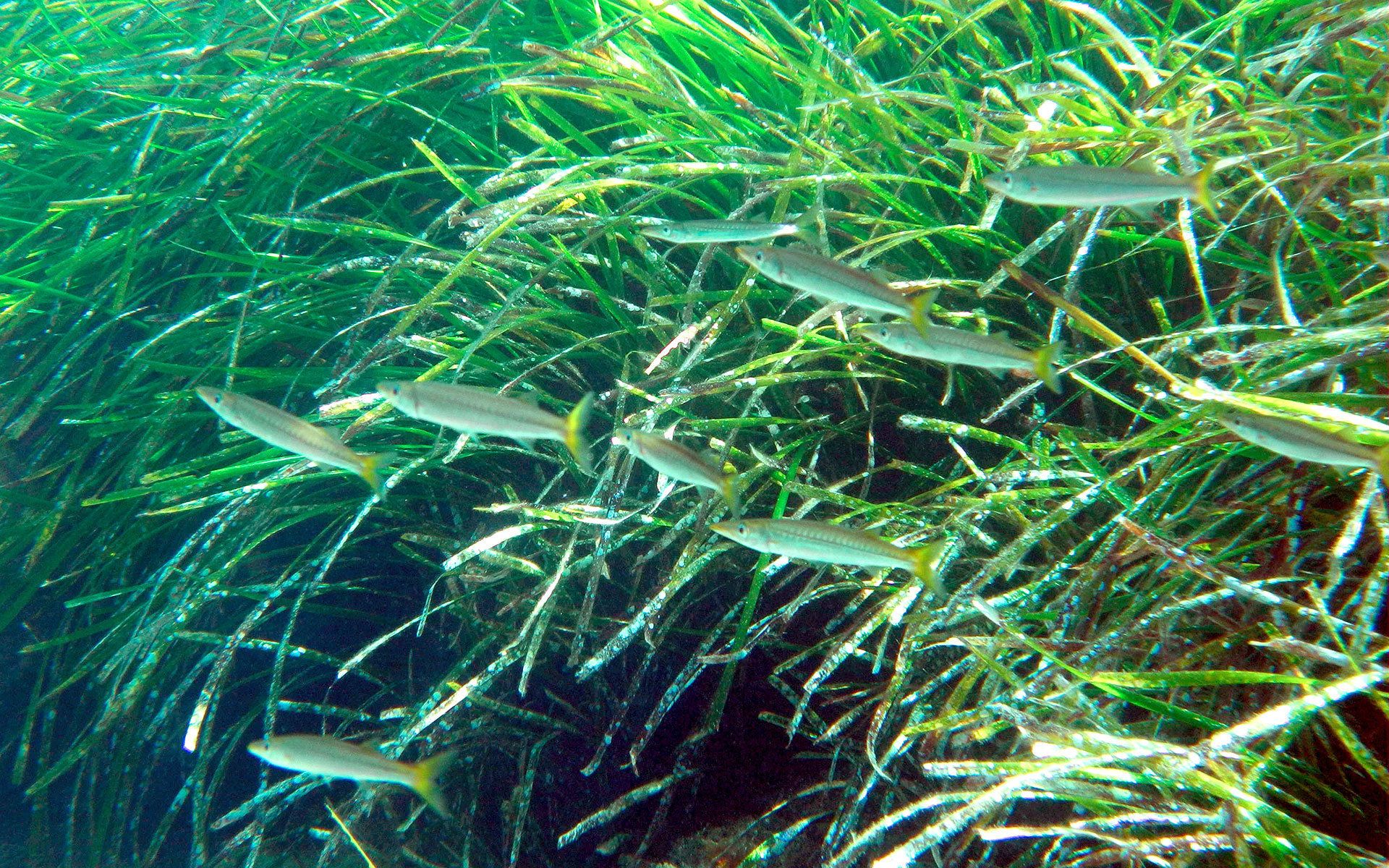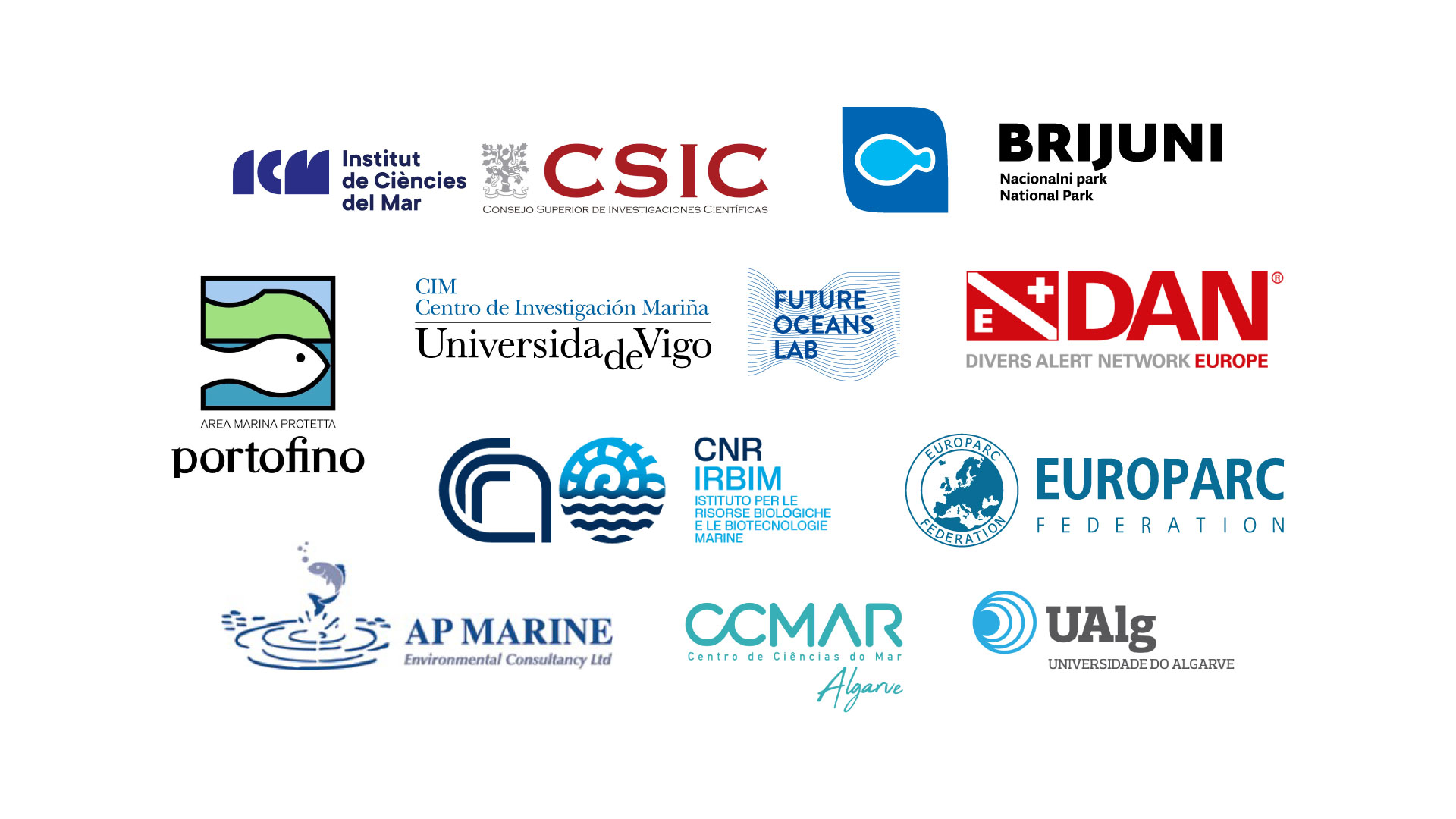
Our story
Climate change is dramatically affecting the Mediterranean Sea, which is warming three times faster than the world’s average rate, amplifying the effects of existing threats to the marine ecosystems and reshaping their biophysical and chemical characteristics. Increased water temperature, sea-level rise, extreme weather events and ocean acidification, all of which have serious consequences for natural systems, are only part of the factors causing the Mediterranean marine ecosystems to change.
Overall, this change in marine ecosystems negatively affects the provision of ecosystem services that the Mediterranean society relies on, such as food production and water quality. Additionally, these ecosystems can often provide solutions to tackle some of the effects of climate change, such as flood and erosion control in extreme weather events and sea level raise, or carbon sequestration, which deters carbon to be release to the atmosphere while it is storage in carbon sinks. These type of solutions based on the services provided by the ecosystems is what we call nature-based solutions.
Why MPA4Change?

MPA4Change was born as a continuation of a series of Interreg Euro-MED projects that aim to support to the adaptation of Marine Protected Areas in the Mediterranean region to climate change. This set of initiatives followed the same rationale: increasing the MPAs resilience to climate change by implementing adaptation strategies that both protect the biodiversity and the nature-based solutions provided by the ecosystems they shelter.
Nonetheless, whilst the projects and work that preceded this project focused on the production and testing of protocols for climate change adaptation in Marine Protected Areas, MPA4Change goes beyond the production and focuses on the transfer of the already existing knowledge and experience.
Previous initiatives on climate change adaptation
Far from been an initiative isolated in time, MPA4Change was preceded by other initiatives, two Interreg Euro-MED projects among them, that worked towards the adaptation to climate change of Marine Protected Areas in the Mediterranean region. Thus, MPA Adapt and MPA Engage were the driving initiatives that lead to the development of the MPA4Change project.
Outcomes and expertise obtained from these two projects, such as toolkits and a team of experienced MPA managers in climate change adaptation strategies, currently conform some of the core components that allow the implementation of MPA4Change.
MPA Adapt
On the one hand, the project MPA Adapt aimed to enhance the resilience of MPAs to climate change and safeguard the provision of ecosystem services, which rely on the presence of healthy and well-functioning marine systems. To do so, the project worked on strengthening the capacity of MPAs to assess their risks in front of climate change, increase their capacity to respond to its impacts and contribute to establishing adaptation measures and integrate them into their planning and managing schemes.
Visit MPA Adapt website
MPA Engage
On the other hand, MPA Engage, the last one of the two projects, continued to support Mediterranean MPAs to adapt to and mitigate the ongoing climate change effects in the Mediterranean Sea. Through a participatory approach, MPA-Engage monitored the climate change impacts and elaborate vulnerability assessments and climate change adaptation action plans in eight Marine Protected Areas of the Mediterranean basis.
Visit MPA Engage websiteOur partnership
It is noteworthy that, additionally to the outcomes delivered by MPA Adapt and MPA Engage, a substantial part of the partnership that conformed these projects is currently present at MPA4Change. Hence, MPA4Change counts with a solid partnership, made of organisations and people that have fruitfully worked together in the past to achieve a common goal. These are the organisations that conform MPA4Change:
- Spanish Research Council (CSIC), Spain;
- Consortium of management of Portofino Marine Protected Area, Italy;
- Public Institution Brijuni National Park, Croatia;
- University of Vigo, Spain;
- DAN Europe Foundation, Malta;
- National Research Council (CNR), Italy;
- EUROPARC Federation, Spain;
- University of Algarve, Portugal;
- AP Marine Environmental Consultancy Ltd, Cyprus.


